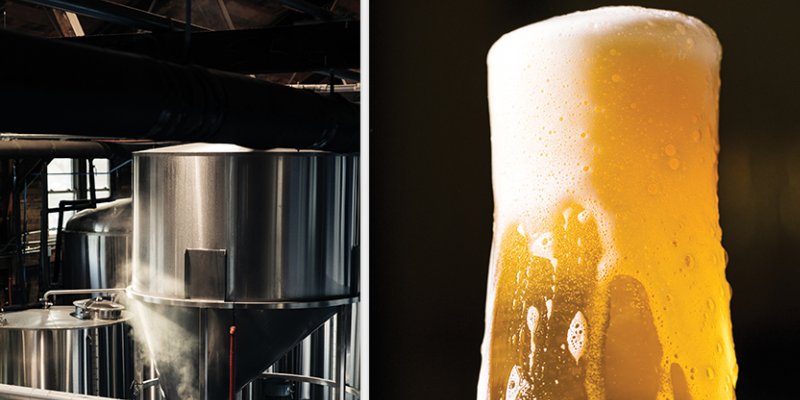Brewing beer from scratch requires precision and proper equipment. Large metal vats, called fermentation vessels (or fermenters) hold ingredients in place as yeast ferments, creating specific types and flavors of beer.
During the COVID pandemic, breweries had to adapt to restrictions in place. By creating outdoor seating and take-home options, breweries like Asheville Brewing made it through.
Hillman Beer.
At Burial Beer, owners Doug Reiser, Jess Reiser, and Tim Gormley worked to preserve their business through the pandemic.
A worker at Burial's Forestry Camp Production.
Patrons enjoy the South Slope taproom's outdoor seating.
Jay Richardson, general manager of New Belgium's Asheville location.
New Belgium Brewing is one of the largest international breweries to set up a location in WNC.
Zillicoah Beer's brewery. The word "zillicoah" is borrowed from the Cherokee people, and is one of the many monikers for the French Broad River.
Homeplace Brewing was the first brewery to open in Yancey County, and has greatly expanded over the years.
Owners Kaeleigh McCauley and Julian Arena of Outsider Brewing use one-of-a-kind glass fermentation devices to share their process with patrons.
“These small town breweries in small towns really have a strong sense of place and work to integrate into the community.” —Clark Duncan
Appalachian Mountain Brewing is expanding, just like so many other locally-grown breweries.
7 Clans Brewing, a majority-female indigenous-owned company now has two taprooms across the region.
A brewery in planning, brewwell (above) will offer a unique combination of brewing education with wellness and yoga retreats.
In one place, patrons can sip ales, lagers and more made from traditional ingredients as well as attend beer education classes and wellness seminars.
